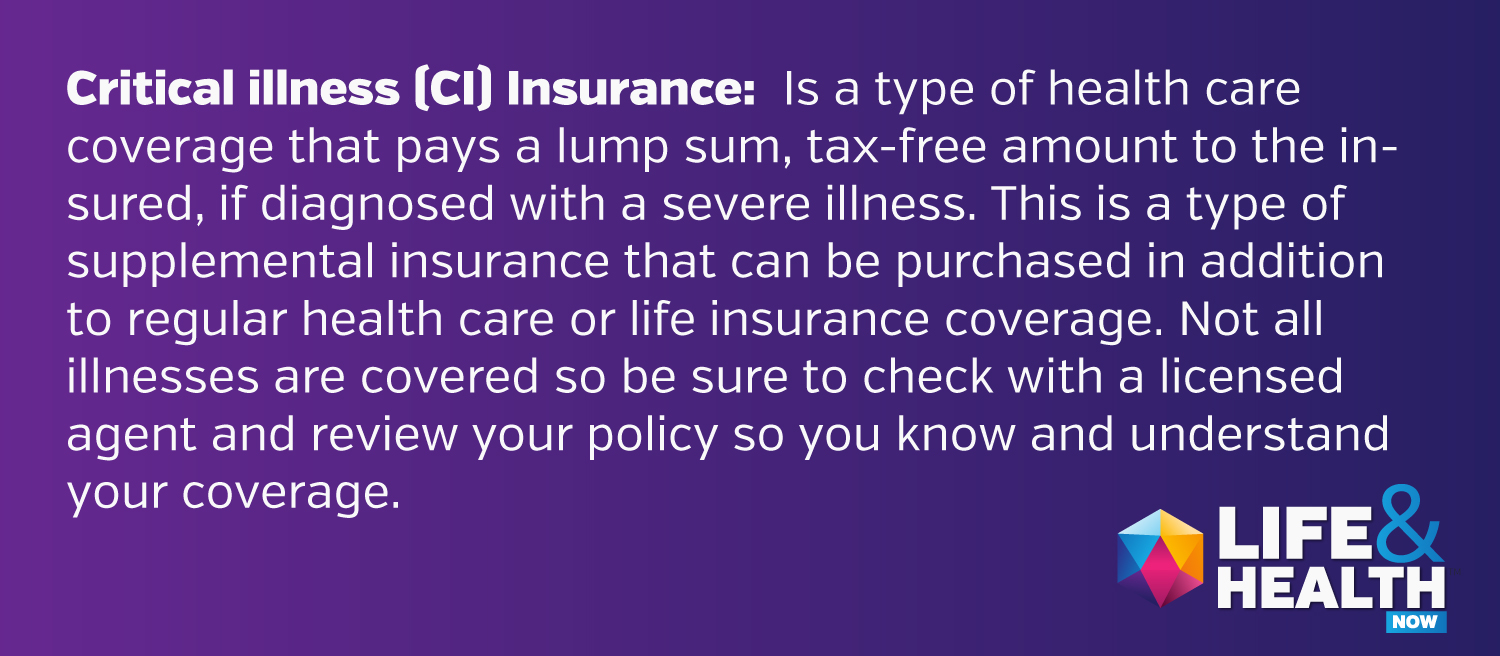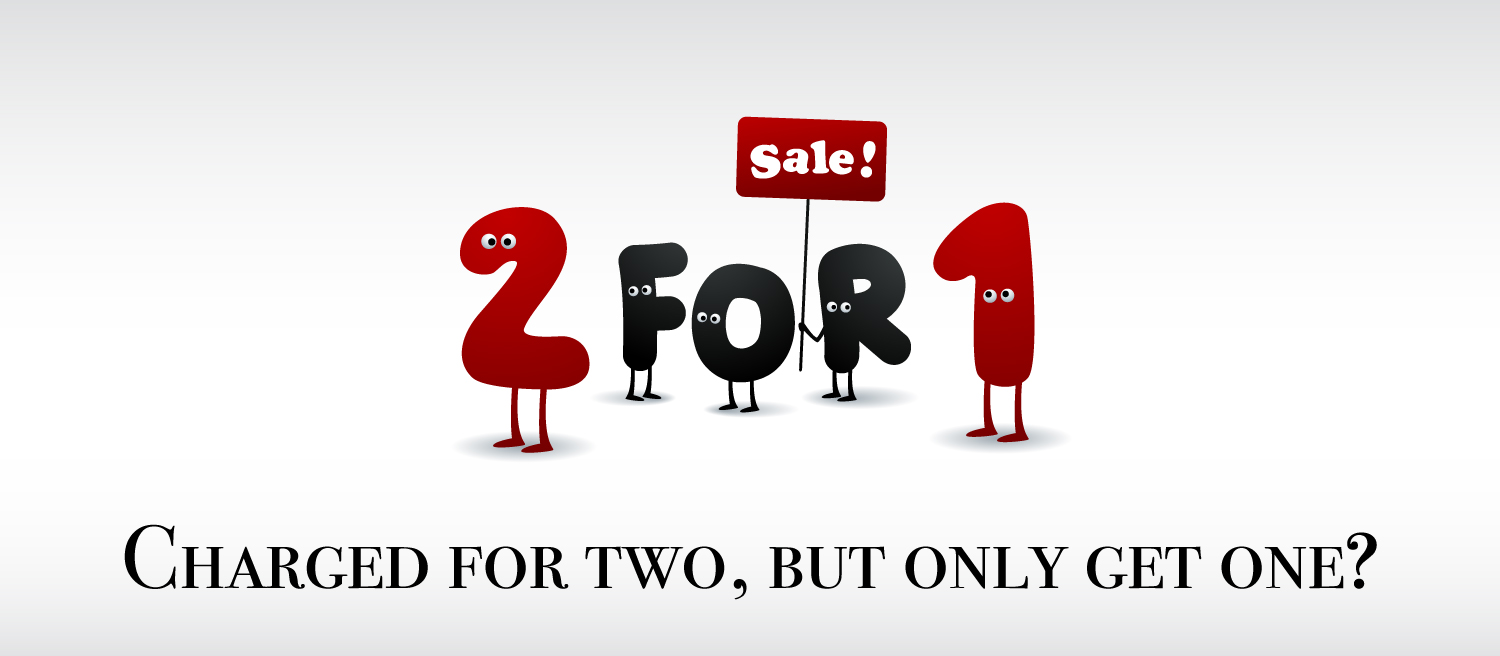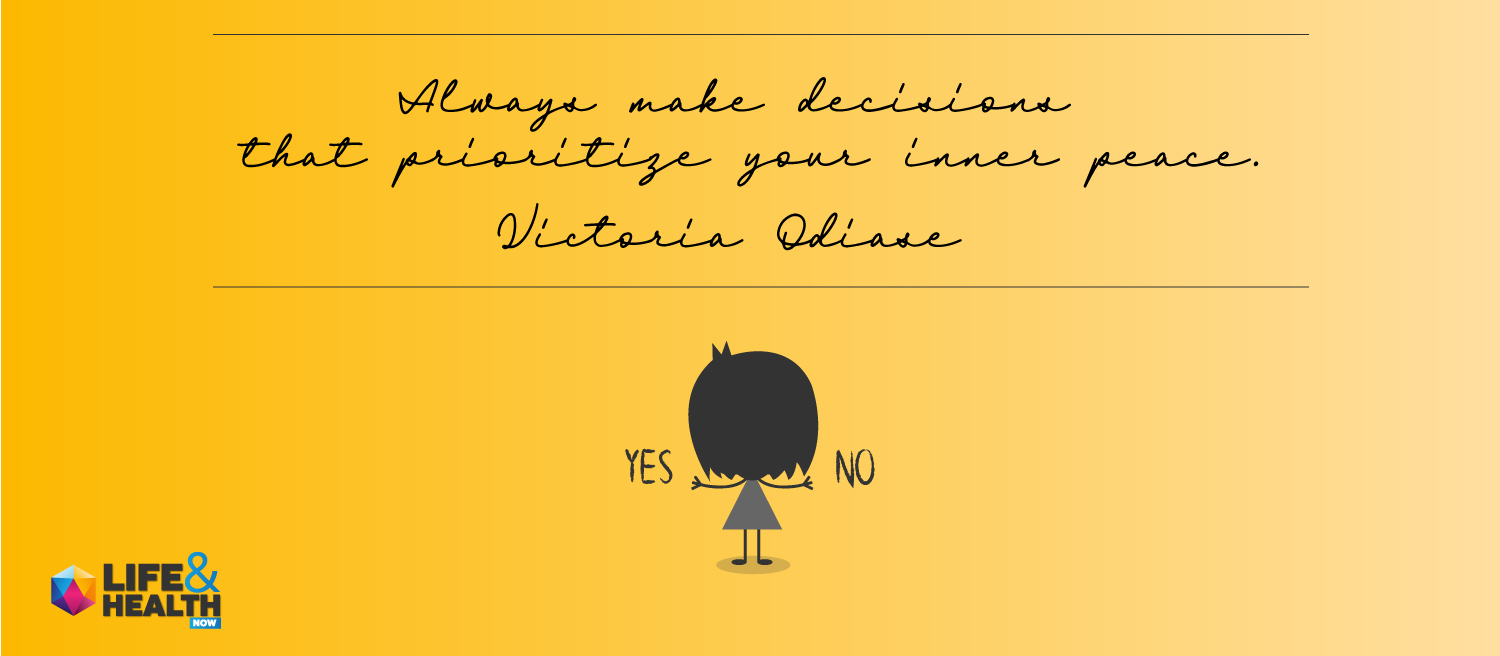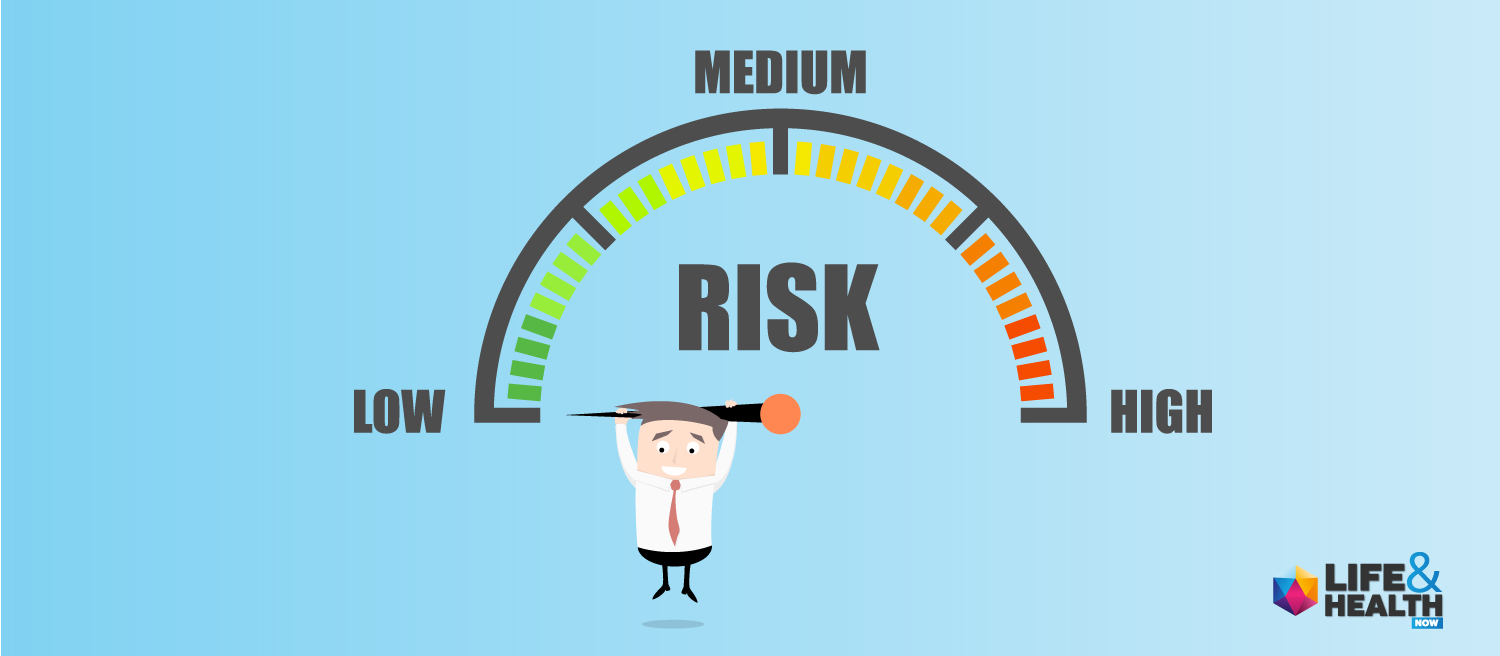What is critical illness insurance, and should you consider buying a policy?
If you are concerned that you might face a critical illness in your lifetime and you don’t have the financial resources to protect yourself, or your family, then it’s absolutely worth considering. If you were to face a critical illness that is covered by the policy, it will provide financial protection, peace of mind and security.
We’re blessed to live in a time where so many advancements in modern medicine exist. The percentage of people who suffer critical illnesses, such as heart attacks or strokes and yet survive is increasing each year. However, that does not mean that life didn’t change for those patients. In many cases there may be substantial modifications to their lifestyle, including occupational changes, which could directly affect their ability to earn and provide financial resources for their family.
This is where critical illness coverage steps in to help save the day. Of course that is only true for those who are fortunate enough to have critical illness coverage in place prior to experiencing the illness or disease. If you or your loved one for example selected to add a $300k critical illness coverage rider to your life insurance policy, and you suffer and survive a heart attack, you would receive a lump sum tax-free payment of $300k, from the insurance company. It’s that simple. Your policy would be considered over at that point (since it has paid out on the claim), but you would receive the money to do with it as you wish.
Again, we have to say that this is just an example, and that every policy is governed by the terms of the individual policy agreement. It also assumes all of the other obvious factors such as the person insured is actually named on the policy, your policy is in good standing with on-time payments and your critical illness coverage includes the named illness, and in this case, a heart attack would be the named illness covered or included in a list of named illnesses which are covered. So, based on the terms of your policy, it’s a pretty straightforward kind of coverage to help people deal with serious, and often life changing events (i.e. heart attack, stroke, or cancer).
With the number of people who experience some kind of a critical illness each year, it’s not hard to figure out why some choose to add Critical Illness coverage to their policy. For those who do, Critical Illness coverage could make a huge difference in the quality of life, and their loved ones, for those who are fortunate enough to have planned in advance. That being said, only a small number of those experiencing such an illness will have the proper coverage in place.
Use the links below to skip directly to any point of this article that interests you.
In a hurry? We understand, if you prefer to just receive a quote right away, you can use our Quick Quote request and find the lowest cost, cheapest life and health insurance premiums with the coverage that fits you or your family today.

What is Critical Illness Insurance?
Let’s say you’re a healthy young adult, but concerned that one day you might experience a life challenging health event such as cancer. With critical illness coverage, the insurance company will pay out a one time, lump-sum tax free benefit. The key is the illness must be specified (defined) within the policy that you purchased, and it must occur during the term of your policy.
Your policy must be in good standing, including compliance with all of the terms and conditions included in your policy. Another thing to keep in mind is that upon the expiration of your policy’s term, the coverage will also no longer be in effect, as the coverage ends based on the termination date, which is a date that is specified in every policy.
Critical illness (CI) coverage is often combined as optional coverage which is added to a term life insurance policy. It may be offered as a rider when creating a custom insurance solution. There is an important point to make note of and that is you can only use either the critical coverage or the death benefit, not both. For example, if the policy were to pay a lump sum payment for the critical coverage rider, then the term life insurance death benefit will not be paid. The policy will have completed its coverage with the critical illness payout, and will no longer be in effect, should you pass away at a later point in time.

Is Critical Illness Coverage Worth It?
Some might argue that they would end up paying for two coverages but only receive one in the above scenario. And in a certain way, you could say, they’re right. You might look at it this way too, but it’s worth considering. Does that necessarily make it a bad thing? If it fills a need and solves a major concern or potential financial disaster, who are we to judge whether that is necessarily good or bad. It may just depend on the situation. And as long as the person who is obtaining this coverage understands the way it works, and feels good about it, isn’t that what matters most? I would say that’s a pretty important point to consider.
However you see it, I think one thing that we can all agree on as the most important thing to realize, and to be very clear about is the basic understanding of how the policy works and that it is agreeable to the parties.
The paying for two benefits and only receiving one question, reminds me of the arguments against Whole Life insurance vs Term Insurance. In many Whole Life or Universal Life insurance policies, there is a “cash-value” feature, in addition to the “death benefit”, but the insurance company (based on the way that most of these policies are set up) will only ever pay out one or the other, at the time of death, not both. Or if the policy holder decides to withdraw 100% of their “cash-value”, before death, from their policy, there again, that would terminate most of these types of policies and therefore the insurance company would never have to pay the death benefit. I say most because depending on the fine print, there could be policies which differ slightly from this norm, but in general, the majority of Whole Life or Universal Life policies will be terminated if you cash-out of them or surrender the policy for the policies cash-value.
So, here again, you’re (in theory) paying for two things and only end up with one. It seems to be more realistic that one could much more easily create a separate savings account or retirement fund for themselves, and purchase a stand alone Term Life insurance policy to cover their basic life insurance needs during times where their liabilities are highest and their income or savings is at it’s lowest point. But as one get’s older and their liabilities decrease, and hopefully their savings has increased, they will have less need for a reliance on life insurance to cover the unexpected financial loss. And that would be a workable solution for many people towards solving the Whole Life insurance dilemma of the paying for two things (life insurance & cash-value “savings”), and only getting one or the other when they bundle their life insurance with cash-value. However, with Critical Illness coverage, it’s a little more difficult to argue how one might get around this by separating the two. If you’re considering the need for Critical Illness coverage, there’s a good chance you’re concerned about the financial loss of income after such an event. If that is a chief concern of yours, then you may not have a sufficient savings to adequately provide for such an unexpected event. And if that’s the case, that is particularly the kind of problem that insurance is best suited to solve. So, I don’t see paying for two protections, in this case Critical Illness, plus Term Life and only receiving one in the end, to be much of a deterrent for adding the Critical Illness protection, if that is a major concern. At least in the case of adding Critical Illness coverage to a Term Life insurance policy, it’s not a problem that could easily be solved with any other means (other than insurance). Sure, you could start a separate savings account to protect yourself for such events as an unexpected heart attack, stroke or cancer, but there is no way to predict when such an event might occur, or even if one ever will for that matter. That being said, the uncertainty would at least open you up to the possibility that it could occur sooner than later, and in that case you would not have had much time for the efforts of your savings to amount to very much.
In short, we believe that Critical Illness comes down to a personal choice. It’s not a problem that is easily solved (for most), by any other way, other than insurance. And for that matter, we stand by our original statement that Critical Illness insurance is a great product for anyone who is concerned over the financial impact of an unexpected health crisis.
If you’re one of those people who find themselves concerned over the uncertainty of their health in the future, let’s circle back to how one might add Critical Illness coverage to a customized insurance plan.
Critical Illness coverage is one of many different options within a special area of insurance called accelerated death benefit riders. You can think of policy riders as optional add-ons, they’re really just different options which can be added to your base life insurance policy to create a customized plan to fit your individual needs.

Is Critical Illness Coverage Right For Everyone?
It really depends on your situation and the level of risk that you’re comfortable with taking. Depending on your lifestyle, overall health, financial liabilities and concern for the future, it could be a wonderful fit and bring you a great deal of peace of mind.
For example, if you are married with children, and have a mortgage, you might be concerned that your mortgage could be paid on-time, should you face a major life threatening illness. Often times people who are in this situation find they are no longer able to continue working. This loss of income might be devastating to your family’s stability. Even if you have planned to protect your family’s financial interests with a life insurance policy, you might still be concerned over what would happen should you face a long and drawn out illness? How would your bills be paid? What impact might this have on the quality of your life and well being as you cope with the treatments and therapies?
Each of these are deeply personal questions that each person may answer very differently. We understand, and this is why there is no one size fits all solution.

Should I Consider Critical Illness Insurance?
Everyone’s situation is different so it’s hard to say, but it is certainly worth considering. I doubt anyone who added, then found out they were facing a critical illness would regret the decision. That’s the thing about insurance. One of the reason’s that insurance as a concept has evolved over thousands of years is based on the uncertainty of the future. If you knew without a doubt that you would never face a critical illness situation, then of course you would decide to pass on it, but who can say what the future holds? Then there’s the other individual aspect of the cost. The payout and the premiums will be different for different people, based on many risk factors. This is why we say, it certainly can’t hurt to inquire and check it out. You may review your quote and after weighing your options, decide the peace of mind is well worth the monthly premium. Whether single or married, if you have family members who are depending on your salary, it may be exactly the answer that you’ve been looking for to offset the risk of financial uncertainty. But no one can answer that question, but you.
How Much Coverage Is Enough?
Again, this is a personal question that only you will be able to answer, but I would encourage you to think about your financial obligations, do you have a mortgage, what kind of debt do you have? Is it a lot or a little? Have you made promises to your children that you’ll want to make sure you’re able to fulfill?
How Would The Payout Work? Is it Percentage Based?
Generally, most critical illness coverage pays the full policy amount. That means you’ll receive the full benefit no matter how significant your illness is rated. However, some plans that do payout based on the seriousness of your illness, so be sure to inquire for specific details about the plan that you’re considering.

Which Illnesses Are Covered?
Each policy can be different so be sure to refer to your actual policy and underwriting agreement for clarification, but common illnesses which are normally covered include cancer, heart attacks and strokes. Depending on the underwriter you may have an option to add some additional illnesses to this list as add-on coverages. Be sure to ask your agent about which illnesses would apply with respect to coverage, and which illnesses would not be included in the coverage.
Other possible illnesses which you may want to inquire about, may include the following:
- Major organ transplant
- Deafness
- Traumatic head injury
- Parkinson’s disease
- Bacterial meningitis
Critical illness and terminal illness are not the same. Terminal illness is any illness where the person who has received the diagnosis is not expected to live beyond 1 year from the date of the diagnosis. Critical Illness is an illness which could be life threatening, but doesn’t necessarily have to be. It could just mean you’ll have to adjust to lifestyle changes based on therapies, surgery or other factors which impact your life as a result of the illness. Not all illnesses qualify as “critical illnesses”, be sure to ask your agent and/or check the details of your critical illness policy.

Medical History & Risk Assessment
Insurance companies have to base their pricing based on risk. Don’t be offended or surprised to provide the insurance underwriter with answers to their questions with regard to your medical history. This is the only way that they’ll be able to provide you with an accurate price. Your monthly premium cost is based on a complex formula which they use to determine statistically how much to charge. Make sure you are completely honest in filling out your application, with regard to your medical history. If you are not honest, and they find out you did not provide an accurate answer, or worse that you lied or deceived them, this could result in the insurance company not paying the claim. You would not want that to ever happen, and it’s easy to avoid this by simply making sure that you provide a completely honest answer, when completing your Critical Illness coverage application.
Speak with a licensed agent today. We're here to answer all of your questions.
Choosing the insurance coverage for your family is a great way to protect your loved ones. Our licensed agents are here to help. Contact us today to get answers to your insurance questions.
